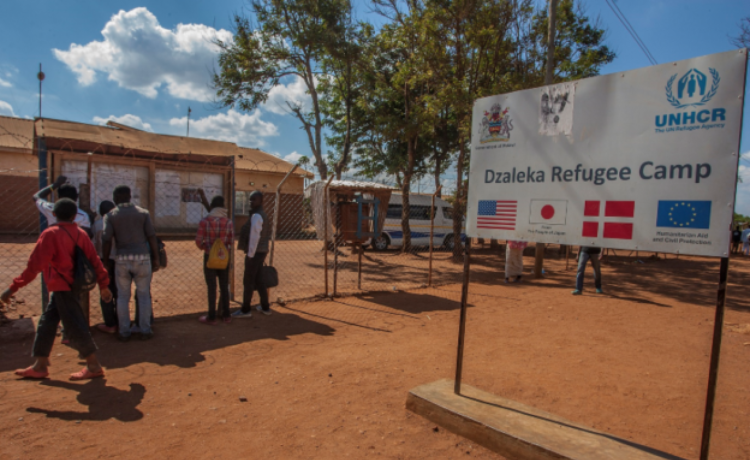By Chikumbutso Mtumodzi, Dowa
Apparently, the Government of Malawi has been taking a lot of flack for its decision to begin rounding up all refugees that are staying outside designated camps in the country without proper documentation, and repatriating them back to Dzaleka Refugee Camp.
Some people have condemned the government for the operation, and accused it of human rights violations. However, the government deserves commendation for the smooth implementation of the exercise considering that this is a delicate and emotive exercise.
On March 27, 2023, the Ministry of Homeland Security issued a notice to all refugees and asylum seekers residing in various locations across districts and cities in the country to return to Dzaleka Refugee Camp in line with Articles: 7, 13, 15, 17, 19, 22, 24, 26 and 34 of the UN Convention relating to status of Refugees.
This notice also followed a High Court order of 12th August, 2022 (The State: On the Application of Abdul Nahimana (on his own behalf and on behalf of Refugees and Asylum Seekers in Malawi) and Samuel Mkumbira -vs- Minister of Homeland Security; Judicial Review Cause No. 18 of 2021).
The ruling obliged all refugees and asylum seekers in the rural areas to relocate to Dzaleka Refugee Camp by November 30, 2022. The notice further stated that all refugees and asylum seekers residing in the Urban Areas relocate to Dzaleka Refugee Camp by 1st February 2023.
A sigficant number of refugees complied with the order and returned to Dzaleka Refugee Camp, but there were also others who did not comply with the order. This is the scenario, which prompted the government to issue the relocation order.
All individuals, including refugees cannot and should not exist in a lawless vacuum and that the law is the ‘floor’ which must be obeyed.
Indeed, the Government of Malawi is a state party to the 1951 UN Convention relating to the Status of Refugees. As such it is obliged to protect Refugees and Asylum Seekers in designated camps. This is why Dzaleka Refugees Camp was established with assistance from UNHCR where appropriate provisions and required international standards for a safe stay for all refugees and asylum seekers are provided.
Indeed, the government has followed to the letter all due processes to ensure that the relocation process is smooth and without hitches and that it has been done in accordance with the prevailing international statutes and the law of the land.
One of the reservations in then protocol; that was signed was that Malawi would not integrate asylum seekers into its communities and that review of such applications would happen at ports of entry or established locations as is the case with Dzaleka. Everything that the country is doing now is in compliance with the International Framework on the Convention of Refugees, the Refugees Act and the Republican constitution.
As a country, Malawi is actually doing better in the relocation exercise looking at the often fluidity of such operations.
Malawians and the international community are well aware that a court ruling for the refugees to relocate to designated areas, particularly Dzaleka Refugee Camp, was made in August last year. All this time government gave space to the refugees to prepare and to relocate by themselves without hitches.
It is only now that some enforcing mechanism is being applied to ensure compliance. Secondly, the government has also made it plain clear that the enforcing element can only be done by relevant arms of the State such as the Immigration Department and the Police to ensure that no one is taking the law into their own hands.
Dzaleka Refugee Camp was established in compliance with international standards, which prescribe having certain amenities. In Malawi, they include but not limited to having the Katubzya Primary and Secondary School run by JRS, the Dzaleka Health Center run by the Ministry of Health and the Dzaleka Market under the Ministry of Local Government.
A few years ago, Malawi adopted a Prema-facie approach to asylum seekers, and that meant it would grant refugees status to a group of over 90,000 asylum seekers mainly coming from the Democratic Republic of Congo (DRC), Rwanda and Burundi.
The approach meant that the refugees would be integrated into the society and offered access to free education in Malawian Primary, Secondary and Universities; they will have access to Malawian IDs and passports; They will have access to the country’s social services and free access to health facilities; access to exemptions on trade permits and also access to land. This is almost granting the asylum seekers full citizen benefits.
*Disclaimer: Views contained contained in this article are personal views of the author*













